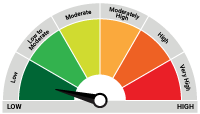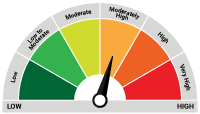Have You Heard About “Systematic Withdrawal Plan”?
Posted On Friday, Dec 31, 2021
| Table of Contents | |
| Sr no | Header |
1 | What is a Systematic Withdrawal Plan |
2 | Systematic Withdrawal Plan – Ideal Investors |
3 | Systematic Withdrawal Plan Calculator |
4 | Systematic Withdrawal Plan Returns |
As an investor, we are sure you have heard about an SIP or systematic investment plan, where you fix an amount to be deducted from your bank account on a pre-decided date every month, to be invested in a fund of your choice.
But have you heard about a Systematic Withdrawal Plan?
If not, then in this article we are going to tell you more about systematic withdrawal plans.
A Systematic Withdrawal Plan or SWP as it is commonly called, gives the freedom to an investor to withdraw an amount every month/week/quarter/year from his/her mutual fund scheme. The date for this withdrawal is pre-defined.
The best part is that this amount that is withdrawn could be withdrawn on an annual, semi-annual, quarterly, or monthly basis.
In simpler words, a systematic withdrawal plan gives you an option to redeem your investment in a phased way.
But mind you, it is different from lump sum withdrawals. Systematic Withdrawal Plans helps an investor withdraw money in pre-determined instalments.
Which makes it a stark opposite of a systematic investment plan (SIP).
Because as you know, in an SIP, you invest from your bank account into the fund of your choice. Whereas in a Systematic Withdrawal Plan, you move your investments from your mutual fund to your bank account.
Systematic withdrawal plan lets you choose to withdraw a fixed amount at a pre-determined frequency from the invested corpus. After withdrawal, the amount will be deducted from the investment while it continue to accumulate interest.
You can use this as you want - reinvest in some other fund or use it for achieving your goals.
So, who are the investors for whom a systematic withdrawal plan is ideal for?
So, in short, a systematic withdrawal plan is ideal for investors who want to redeem their units regularly and get the monies in their account at pre-determined intervals.
So, do you think a systematic withdrawal plan is ideal for you?
Well, before you jump on the wagon, we want you to know about something else, which is very important.
Systematic Withdrawal Plan Calculator:
A systematic withdrawal plan calculator is, in simple words, just a simulation that gives you a fair idea of the monthly withdrawals from your mutual fund investments.
A systematic withdrawal plan calculator needs you to enter the total investment amount, the withdrawal you plan to make per month, your expected rate of return, and the period/tenure of the investment.
The systematic withdrawal plan calculator to be used to know how much an investor can withdraw from his or her lumpsum investments.
Before you start investing and withdrawing with a Systematic Withdrawal Plan, it is very much recommended that you have access to and know how to use a systematic withdrawal plan calculator.
All systematic withdrawal plan returns you get from redemption via an SWP is subject to taxation.
For debt funds, where the holding period is lower than 36 months, the capital gains are added to your overall income and the applicable income tax slab rate is then applied to them.
However, if the hold period is more than 36 months, then the capital gains are taken as long-term and taxed at 20% post indexation.
As for equity funds, if the holding period is less than 12 months, the capital gains realised are taxed at the rate of 15%.
And for holding period more than a year for an amount exceeding Rs.1,00,000, it is considered long-term capital gain and is taxable at 10% without indexation.
We think you now are well versed with Systematic Withdrawal Plan in Mutual fund.
So, if you want to start with a systematic withdrawal plan in mutual funds, you can start with it right here with Quantum Mutual Funds.
You can start a systematic investment plan in mutual funds with Quantum Mutual funds, for the following schemes:
• Quantum Long Term Equity Value Fund
• Quantum Liquid Fund
• Quantum Tax Saving Fund
• Quantum Equity Fund of Funds
• Quantum Gold Savings Fund
• Quantum Multi Asset Fund of Funds
• Quantum Dynamic Bond Fund
• Quantum India ESG Equity Fund
If you choose to invest through a systematic withdrawal plan in mutual funds with Quantum, you can invest lump sum and get a fixed pay-out at fixed intervals i.e. it allows the account holders to access their money at regular intervals.
With that, we think it is safe to assume that you know much more about Systematic withdrawal plans now than what you did before you read this article.
After all, we told you about systematic withdrawal plan in mutual funds, systematic withdrawal plan calculator, who systematic withdrawal plan is ideal for, Taxation on systematic withdrawal plan returns, etc.
So, if you have decided to start investing in systematic withdrawal plan in mutual funds, you can start with us right here.
| Name of the Scheme | This product is suitable for investors who are seeking* | Risk-o-meter of Scheme |
| Quantum Long Term Equity Value Fund An Open Ended Equity Scheme following a Value Investment Strategy | • Long term capital appreciation • Invests primarily in equity and equity related securities of companies in S&P BSE 200 index |  Investors understand that their principal will be at Very High Risk |
| Quantum Equity Fund of Funds An Open Ended Fund of Funds scheme Investing in Open Ended Diversified Equity Schemes of Mutual Funds | • Long term capital appreciation • Investments in portfolio of open-ended diversified equity schemes of mutual funds registered with SEBI whose underlying investments are in equity and equity related securities of diversified companies |  Investors understand that their principal will be at Very High Risk |
| Quantum India ESG Equity Fund An Open ended equity scheme investing in companies following Environment, Social and Governance (ESG) theme | • Long term capital appreciation • Invests in shares of companies that meet Quantum's Environment, Social, Governance (ESG) criteria. |  Investors understand that their principal will be at Very High Risk |
| Quantum Liquid Fund An Open-ended Liquid Scheme. A relatively low interest rate risk and relatively low credit risk. | • Income over the short term • Investments in debt / money market instruments. |  Investors understand that their principal will be at Low Risk |
| Quantum Gold Savings Fund An Open Ended Fund of Fund Scheme Investing in Quantum Gold Fund | • Long term returns • Investments in units of Quantum Gold Fund – Exchange Traded Fund whose underlying investments are in physical gold |  Investors understand that their principal will be at Moderately High Risk |
| Quantum Gold Fund An Open Ended Scheme Replicating / Tracking Gold | • Long term returns • Investments in physical gold |  Investors understand that their principal will be at Moderately High Risk |
*Investors should consult their financial advisers if in doubt about whether the product is suitable for them.
The Risk Level of the Scheme in the Risk O Meter is based on the portfolio of the scheme as on November 30, 2021.
| Potential Risk Class Matrix - Quantum Liquid Fund | |||
| Credit Risk → | Relatively Low | Moderate (Class B) | Relatively High (Class C) |
| Interest Rate Risk↓ | |||
| Relatively Low (Class I) | A-I | ||
| Moderate (Class II) | |||
| Relatively High (Class III) | |||
Disclaimer, Statutory Details & Risk Factors:
The views expressed here in this article / video are for general information and reading purpose only and do not constitute any guidelines and recommendations on any course of action to be followed by the reader. Quantum AMC / Quantum Mutual Fund is not guaranteeing / offering / communicating any indicative yield on investments made in the scheme(s). The views are not meant to serve as a professional guide / investment advice / intended to be an offer or solicitation for the purchase or sale of any financial product or instrument or mutual fund units for the reader. The article has been prepared on the basis of publicly available information, internally developed data and other sources believed to be reliable. Whilst no action has been solicited based upon the information provided herein, due care has been taken to ensure that the facts are accurate and views given are fair and reasonable as on date. Readers of this article should rely on information/data arising out of their own investigations and advised to seek independent professional advice and arrive at an informed decision before making any investments.
Mutual fund investments are subject to market risks read all scheme related documents carefully.
Please visit – www.QuantumAMC.com to read scheme specific risk factors. Investors in the Scheme(s) are not being offered a guaranteed or assured rate of return and there can be no assurance that the schemes objective will be achieved and the NAV of the scheme(s) may go up and down depending upon the factors and forces affecting securities market. Investment in mutual fund units involves investment risk such as trading volumes, settlement risk, liquidity risk, default risk including possible loss of capital. Past performance of the sponsor / AMC / Mutual Fund does not indicate the future performance of the Scheme(s). Statutory Details: Quantum Mutual Fund (the Fund) has been constituted as a Trust under the Indian Trusts Act, 1882. Sponsor: Quantum Advisors Private Limited. (liability of Sponsor limited to Rs. 1,00,000/-) Trustee: Quantum Trustee Company Private Limited. Investment Manager: Quantum Asset Management Company Private Limited. The Sponsor, Trustee and Investment Manager are incorporated under the Companies Act, 1956.
Related Posts
-

Understanding AMC: The Asset Management Company to Mutual Funds
Posted On Friday, Sep 06, 2024
In the world of mutual funds, the term "AMC" might appear frequently. AMC stands for Asset Management Company, and it manages the operation and management of mutual funds.
Read More -

IDCW Option in Mutual Funds: A Simple Guide for Investors
Posted On Thursday, Aug 29, 2024
The Indian mutual fund industry has grown incredibly fast over the past 10 years.
Read More -

How to Calculate Returns From an ELSS And Its Tax Implications
Posted On Friday, Feb 10, 2023
As you may know, there are multiple tax-saving options in India to save taxes under Section 80C of the Income Tax Act
Read More



